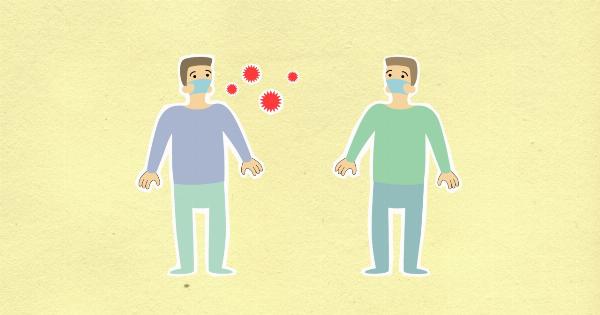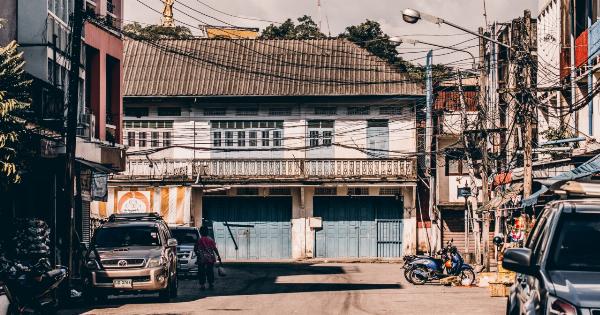In a recent announcement, Brazil confirmed the presence of the polio virus within its borders, sparking concerns among health officials and the general population.
Polio, also known as poliomyelitis, is a highly contagious viral infection that can cause paralysis and, in some cases, even death. The confirmation of the virus in Brazil has raised questions about the effectiveness of immunization programs and the need for enhanced surveillance and preventive measures.
The history of polio in Brazil
Polio, once a widespread public health concern, has been largely eradicated from many parts of the world due to extensive vaccination campaigns. However, Brazil has faced challenges in completely eliminating the virus.
The last recorded case of indigenous polio in the country was in 1989, leading many to believe that the disease was nearing eradication. Unfortunately, sporadic cases have re-emerged in recent years, indicating that the virus still poses a threat to public health.
The confirmation
The confirmation of the presence of the polio virus in Brazil came after extensive testing and analysis of samples from affected individuals.
The Brazilian Ministry of Health, in collaboration with international health organizations, conducted thorough investigations to identify and confirm the cases. The findings have prompted a renewed effort to tackle the virus and prevent further transmission.
Challenges in polio eradication
Eliminating a virus like polio is a complex task that requires significant resources and coordination. Brazil, with its vast geography and socio-economic diversity, faces specific challenges in eradicating the virus. Some of the key challenges include:.
1. Vaccine coverage: While Brazil has a comprehensive immunization program, ensuring high vaccine coverage across all regions and social groups can be challenging.
Low immunization rates in some areas can create pockets of vulnerability where the virus can thrive.
2. Population movement: Brazil’s large population and high levels of internal migration make it difficult to track and contain the virus.
People carrying the virus may unwittingly spread it to new areas, making it challenging for health authorities to control transmission.
3. Socio-economic factors: Socio-economic disparities can impact the availability and accessibility of healthcare services, including immunization.
Poverty, inadequate sanitation, and limited access to clean water can contribute to the spread of the virus in certain communities.
4. Vaccine hesitancy: Like many countries, Brazil has experienced vaccine hesitancy, with some individuals and communities expressing skepticism or concerns about immunization.
This reluctance can hinder efforts to achieve high vaccine coverage and prevent the transmission of the virus.
5. Surveillance and detection: Detecting and tracking the polio virus requires robust surveillance systems, particularly in remote and hard-to-reach areas.
Strengthening surveillance capabilities and ensuring prompt reporting of suspected cases are essential to prevent the virus from spreading undetected.
The way forward
Despite the challenges, Brazil remains committed to eradicating polio and ensuring the health and well-being of its population.
The confirmation of the polio virus has prompted an immediate response from health authorities, who are working on several fronts to control the virus:.
1. Vaccination campaigns: Intensifying existing immunization programs and conducting targeted vaccination campaigns in high-risk areas can help boost vaccine coverage and protect vulnerable populations against the virus.
Mobilizing resources and reaching out to underserved communities will be crucial in this effort.
2. Enhanced surveillance: Strengthening surveillance systems to quickly detect and respond to suspected cases of polio is vital.
Timely reporting and analysis of data can help identify transmission patterns and inform targeted intervention strategies.
3. Public awareness and education: Promoting public awareness about the importance of vaccination and dispelling myths and misinformation surrounding immunization is essential in countering vaccine hesitancy.
Educating communities about the risks of polio and the benefits of vaccination can help increase vaccine acceptance.
4. International collaboration: Cooperation and collaboration with international health organizations and neighboring countries can provide additional support and expertise in eradicating the polio virus.
Sharing best practices, resources, and experiences can accelerate progress in eliminating the disease.
The global implications
While the confirmation of the polio virus in Brazil is concerning for the country itself, it also has global implications. As the virus knows no boundaries, there is a potential risk of it spreading beyond Brazil’s borders.
This highlights the importance of maintaining high vaccination coverage worldwide and diligently monitoring the polio situation in all countries.
The resurgence of polio in any country serves as a reminder that complacency can lead to setbacks in the fight against infectious diseases.
Continuous investment in immunization programs, surveillance systems, and public health infrastructure is crucial to prevent the re-emergence of eradicated diseases.
Conclusion
The confirmation of the presence of the polio virus in Brazil demands urgent action and a multi-faceted approach to tackle this persistent public health threat.
Through strengthening immunization programs, enhancing surveillance capacities, raising public awareness, and fostering international collaboration, Brazil aims to eradicate polio once and for all.































